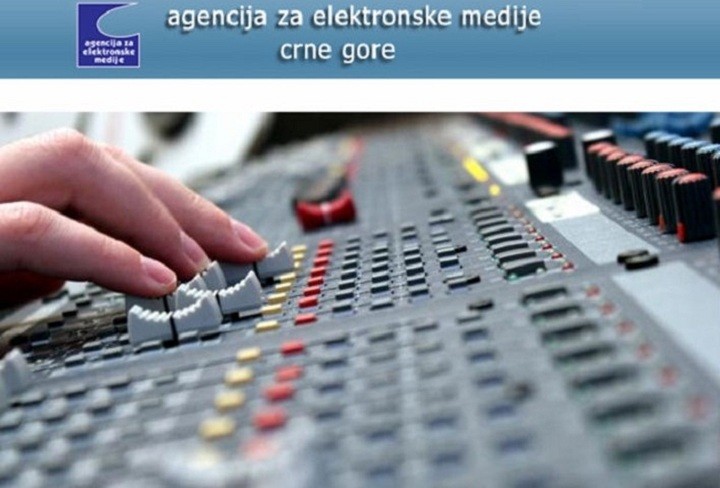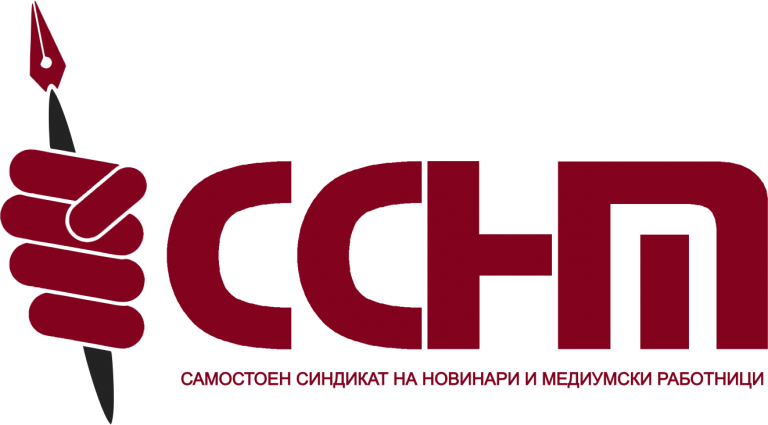CROATIA – Ranked: 59 (+ 5)
We talked to Hrvoje Zovko, president of Croatian Journalists’ Association
 According to an RWB report, things have not changed much compared to previous years: journalists who have investigated corruption, organised crime or war crimes have often been harassed. The RWB states that defamation in Croatia is criminalized and insulting the Republic, its symbols, anthem or flag can be punished by imprisonment for up to three years.
According to an RWB report, things have not changed much compared to previous years: journalists who have investigated corruption, organised crime or war crimes have often been harassed. The RWB states that defamation in Croatia is criminalized and insulting the Republic, its symbols, anthem or flag can be punished by imprisonment for up to three years.
The government has not stopped interfering with Croatian Radio-Television (CRT) affairs, and the administration of that public service continues to sue employees who have pointed to this problem. CRT also has gone one step further and sued the Croatian Journalists’ Association (CJA). The RWB states that physical assaults, threats and cyber-violence continue to be a major problem for journalists, with no response to the authorities.
Yet, journalists are still the target of numerous threats and attacks in Croatia. We are particularly concerned of the silence of the people who run the state; we had recently an attack in Split on two journalists who were just doing their job; Croatian Minister of Interior, Davor Bozinovic condemned the attack, but there was no reaction from Prime Minister Andrej Plenkovic. There is the strong influence of politics in the operation of public service. At one point, the public broadcaster launched a series of lawsuits against other media and journalists who wrote and spoke critically about the work of CRT, which is paid for by all citizens. CRT also sued its own employees as well as the CJA, the only professional association of journalists in Croatia, which is a unique case in the world. Corruption and war crimes journalists are often exposed to harassment, pressure and assault. The prosecution of journalists continues, and all lawsuits by the authorities and the judges aim to intimidate journalists and discourage serious investigative texts on crime, corruption and war crimes. What we especially consider important to mention is that in Croatia has been created an atmosphere in which journalists are guilty of everything.
We would like things to be fixed for next years and Croatia to be even better placed on this list of media freedom, but it is very ungrateful to forecast anything now because if attacks and threats, such as occurred in the first few months of this year continue, I can’t be optimistic that anything will go better.


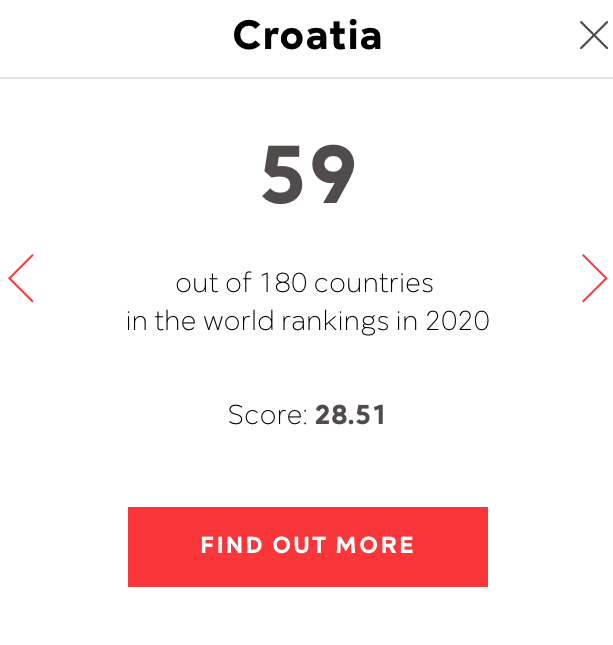
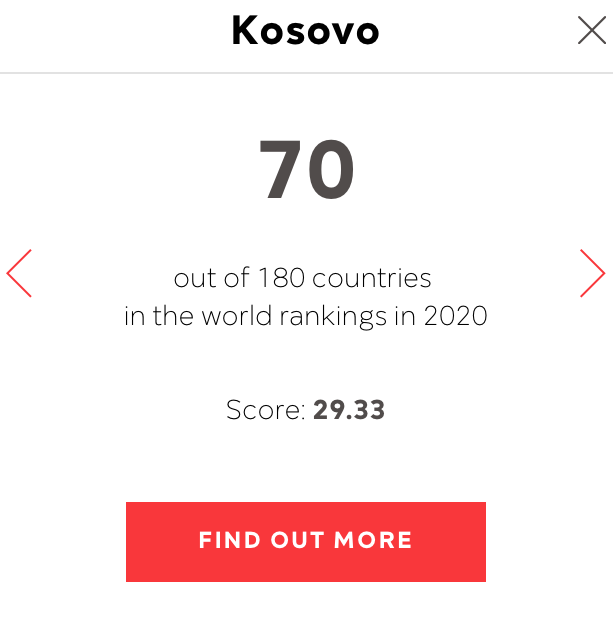
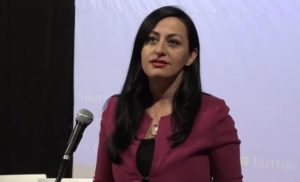 The 2020 World Press Freedom Index confirms what we have consistently proclaimed as Association of Journalist of Kosovo (AJK) – that our media are facing many different problems. Despite the fact that Kosovo has made progress this year, by ranking five positions higher (70th place), the findings of the Reporters Without Borders organisation, are a concern for us. We consider that the report reflects the real situation, which is unsatisfactory in terms of media freedom in Kosovo.
The 2020 World Press Freedom Index confirms what we have consistently proclaimed as Association of Journalist of Kosovo (AJK) – that our media are facing many different problems. Despite the fact that Kosovo has made progress this year, by ranking five positions higher (70th place), the findings of the Reporters Without Borders organisation, are a concern for us. We consider that the report reflects the real situation, which is unsatisfactory in terms of media freedom in Kosovo.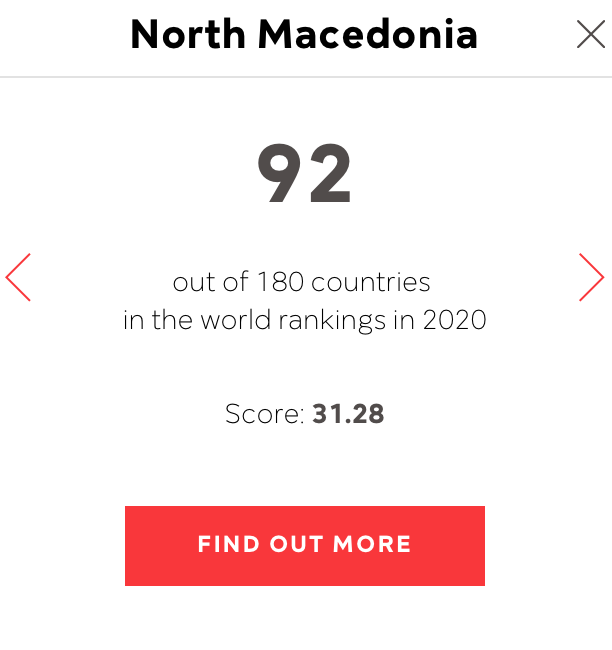
 The report highlights two major achievements in the field of self-regulation and the rights of journalists. In this direction it is stated that: “In the field of enhancing self-regulation and working standards of the professional journalists, there are two ground-breaking achievements: A Register of Professional Online Media which has about 120 members was created by the Council of Media Ethics (CMEM) and AJM. The initiative promotes self-regulation of online media by committing them to respect the Code of Journalists and publishing decisions by the CMEM. The Charter on journalists’ working conditions and the draft Fair Working Contract for journalists and media workers in digital media was also signed by Trade Union of Macedonian Journalists and Media Workers (SSNM) in collaboration with AJM and the CMEM, committing to respect all journalists’ and media workers’ labor rights, their freedom of expression as well as ethical and professional standards”.
The report highlights two major achievements in the field of self-regulation and the rights of journalists. In this direction it is stated that: “In the field of enhancing self-regulation and working standards of the professional journalists, there are two ground-breaking achievements: A Register of Professional Online Media which has about 120 members was created by the Council of Media Ethics (CMEM) and AJM. The initiative promotes self-regulation of online media by committing them to respect the Code of Journalists and publishing decisions by the CMEM. The Charter on journalists’ working conditions and the draft Fair Working Contract for journalists and media workers in digital media was also signed by Trade Union of Macedonian Journalists and Media Workers (SSNM) in collaboration with AJM and the CMEM, committing to respect all journalists’ and media workers’ labor rights, their freedom of expression as well as ethical and professional standards”.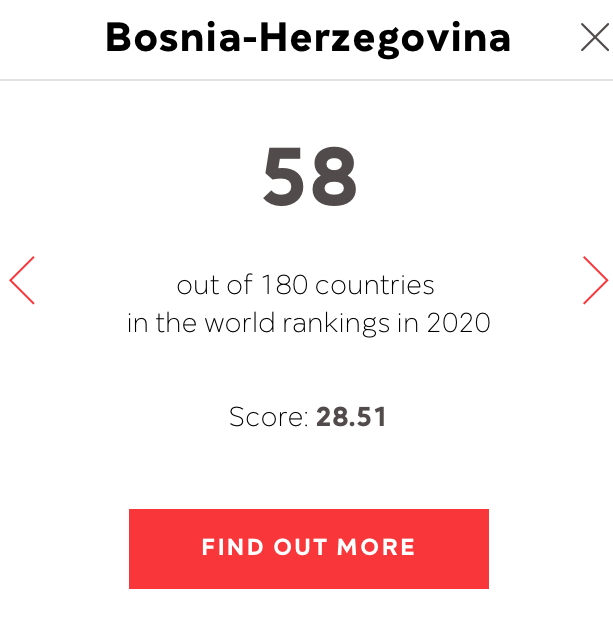
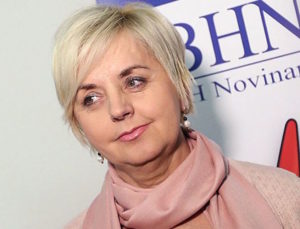 The report largely reflects the real situation in Bosnia and Herzegovina and addresses some of the most important issues in the media and the position of journalists. Although moving up five positions on the ladder is encouraging, it should be emphasized that the number of physical, verbal and cyber attacks and various forms of pressures on journalists in BiH continues to increase.
The report largely reflects the real situation in Bosnia and Herzegovina and addresses some of the most important issues in the media and the position of journalists. Although moving up five positions on the ladder is encouraging, it should be emphasized that the number of physical, verbal and cyber attacks and various forms of pressures on journalists in BiH continues to increase.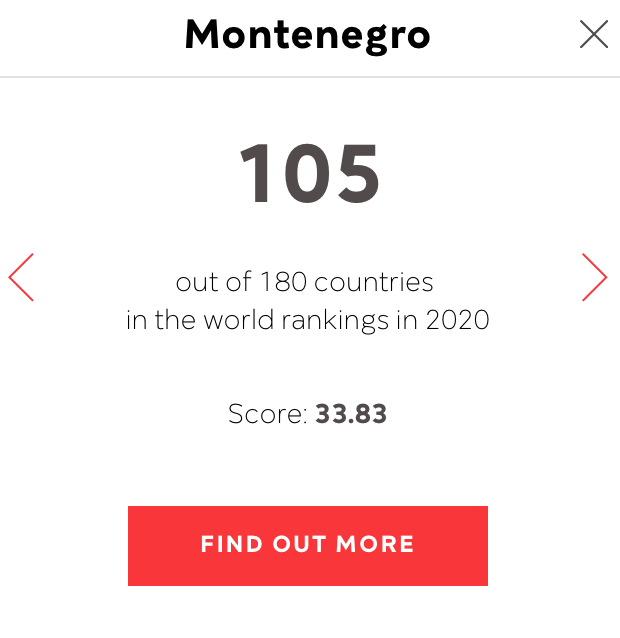
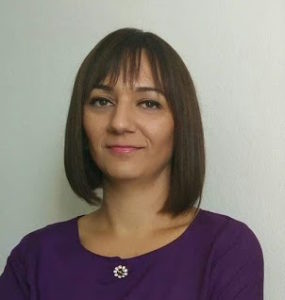 Reporters Without Borders continued to rate Montenegro with the lowest ratings compared to the region. This is what I find interesting and I would like to have more information about the methodology RSF uses. In that way, Montenegro may be put in the right place, but I believe that it is also reducing the problems that have obviously escalated in other countries, especially in Serbia.
Reporters Without Borders continued to rate Montenegro with the lowest ratings compared to the region. This is what I find interesting and I would like to have more information about the methodology RSF uses. In that way, Montenegro may be put in the right place, but I believe that it is also reducing the problems that have obviously escalated in other countries, especially in Serbia.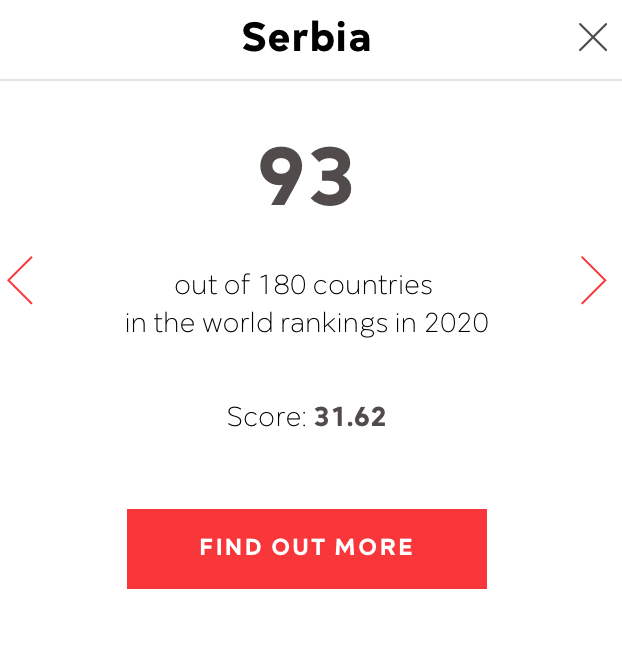
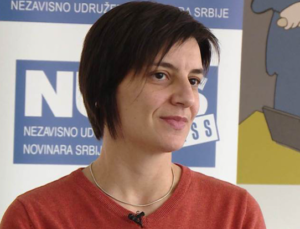 The drop of Serbia on the Reporters Without Borders ranking list does not surprise us. I can say that we expected an even worse position given the deteriorating levels of media freedoms and the safety of journalists in Serbia in the past year. Since 2016, together with its partners from the Regional Platform for advocating media freedom and journalists’ safety, IIndependent Journalists’ Association of Serbia (IJAS) annually conducts a research and publishes its findings in the report Indicators on the level of media freedom and journalists’ safety. Our 2019 report (to be published next month) provides valuable insight into the situation in Serbia and provides details that explain Serbia’s decline on the RSF list. It includes the following factors:
The drop of Serbia on the Reporters Without Borders ranking list does not surprise us. I can say that we expected an even worse position given the deteriorating levels of media freedoms and the safety of journalists in Serbia in the past year. Since 2016, together with its partners from the Regional Platform for advocating media freedom and journalists’ safety, IIndependent Journalists’ Association of Serbia (IJAS) annually conducts a research and publishes its findings in the report Indicators on the level of media freedom and journalists’ safety. Our 2019 report (to be published next month) provides valuable insight into the situation in Serbia and provides details that explain Serbia’s decline on the RSF list. It includes the following factors:
